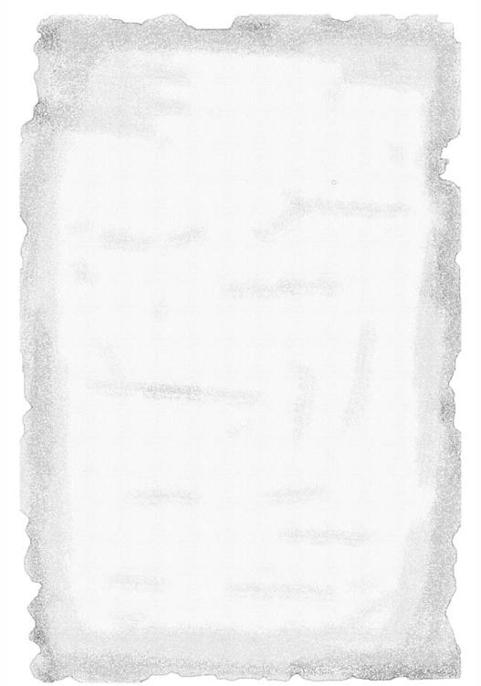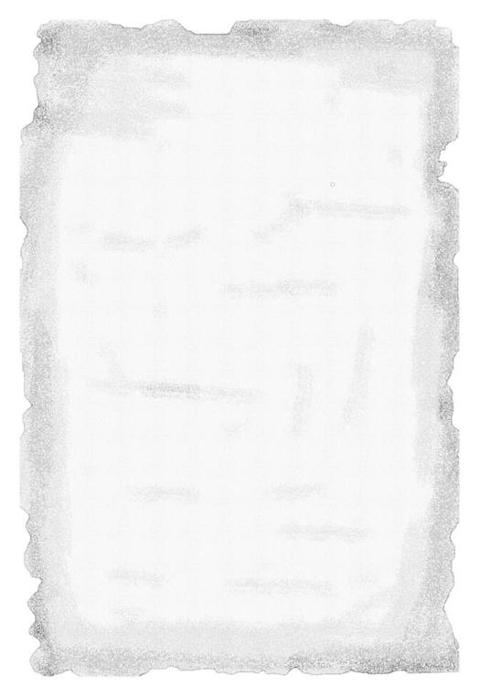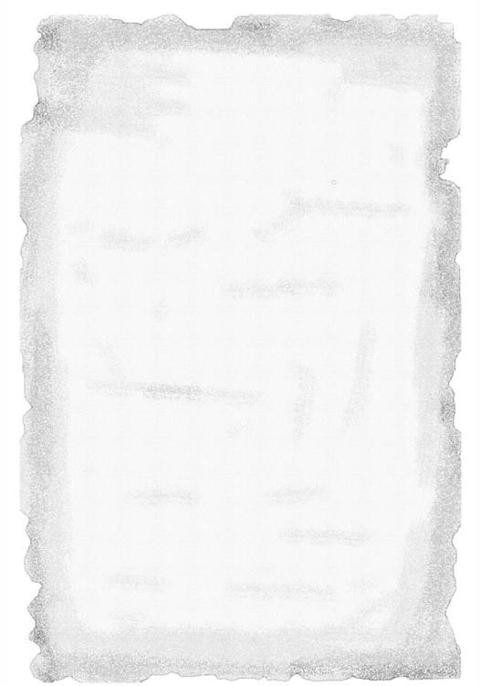Girl at Sea (12 page)
Authors: Maureen Johnson
Tags: #Italy, #Social Science, #Boats and boating, #Science & Technology, #Sports & Recreation, #Fiction, #Art & Architecture, #Boating, #Interpersonal Relations, #Parents, #Europe, #Transportation, #Social Issues, #Girls & Women, #Yachting, #Juvenile Fiction, #Fathers and daughters, #People & Places, #Archaeology, #Family, #Action & Adventure, #General, #Artists, #Boats; Ships & Underwater Craft

Marguerite had much bigger ideas than blue dresses that 94

looked good against her hair, but her aunt would learn that soon enough.
The bell sounded in the hall.
“There he is,” her aunt said. “Let’s just fix you now, dear.
You’re a little bit out of place.”
Marguerite lifted her chin patiently as her aunt adjusted the lace around her neck and tucked a few stray pieces of her hair back into position.
Jonathan appeared at the door. Tall. Too thin. Very bright and extremely shy around her. He had such a lovable way. It was a shame. He interested her. He was the only man who ever had.
But she had to stay with her plan.
“Cook says everything is ready,” her aunt said.
But instead of walking toward the dining room, Marguerite stood and went over to a table by the window. There was a piece of red felt laid over it and a collection of stones and papyrus fragments on top.
“Did my father ever show you these?” she asked Jonathan, spreading them out.
“No,” he said, following her. “I don’t think so.”
He picked one up and looked it at closely.
“I’ve seen this script before,” he said. “We have a few examples of it at the museum. None on display, since we don’t know what it is. Where did he get these?”
“He received artifacts with writing on them from time to time. Most he could identify. These baffled him. Complex.
Highly organized. A very distinct grammar. And do you want to know the strangest part?”
Jonathan nodded, his eyes fixed on hers.
95

“They are from everywhere,” Marguerite said. “These from South America. Some from India and Egypt. Two from Japan.
How can this consistent writing be from so many places?”
“I’m not sure,” he said.
“Here is another strange fact. Almost all of these were found along coastlines or in the water itself. What would you make of that?”
“There are a number of possibilities,” he said.
“What about flooding?” she asked. “The water is hiding something from us, something we cannot access, and it occasionally throws clues our way simply to taunt us. What if the people who made this language were drowned?”
“A flood would certainly have changed the landscape,”
Jonathan said. “And a flood could have destroyed the people who made this language.”
She opened a drawer in the front of the table and removed a letter, passing it to Jonathan.
“On the morning of my father’s voyage out of Naples, he sent this to me. It arrived a week after I heard of his death. I’ve only recently been able to bring myself to open it. But when I did, I found something of extreme importance. I want you to read it.”
Marguerite carefully set the paper in his hand. She watched Jonathan’s eyes run down the page and take in the contents.
“I really think we should go to dinner,” her aunt said. She wasn’t understanding this talk of floods, and she certainly didn’t want Marguerite dwelling on her father’s death tonight. “You know how cook gets. The last time we were late, she threw a spoon at Jenkins.”
96

Jonathan didn’t seem to hear any of this, or at least he didn’t seem to care about Jenkins and the spoon at the moment. He was staring at the letter.
“A vast, ancient society, lost under the waters,” Marguerite said.
There was a thoughtful silence, filled only by the smell of the waiting goose and Marguerite’s aunt’s pained looks.
“I asked you here tonight because I had something to tell you,” she said. “I have to finish what he started. I leave in a week’s time for Pompeii.”
97

Clio woke up when the world shook. She looked up from her fluffy pocket of comforter. There was bouncing. Big bouncing.
This was no good. She wanted the world to be silent and still so that her head would stop spinning. She looked to her right.
All she could see was a little tuft of blond hair coming up out of the folds of a second comforter.
She turned the other way and was blinded by a powerful bolt of sunlight coming in through the little window. She shielded her eyes and slipped out of the bed, sinking into the decadent carpet to look out at the view. Italy seemed to be gone, replaced by sapphire-colored water that stretched in all directions. They were moving through it very quickly, pounding the waves into submission with sheer velocity.
Clio took a quick inventory of herself and her situation.
She wasn’t exactly sick, like she had been after the margarita mix. She just wasn’t feeling great. It felt like someone was 98
tapping on her forehead. She’d had worse stomachaches after too many sweet Thai iced teas; this was only a minor annoyance.
Mostly, she just felt confused. She needed a shower. That would help.
She stumbled over to the glorious bathroom. One empty and one half-full champagne bottle and two sticky mugs sat on the sink. The shower had a temperature knob in degrees Celsius.
She took a guess as to what temperature she wanted and was promptly scalded, then frozen, then scalded again. She ended up backing up to the very edge of the shower stall and cautiously reaching in for the water. The boat hit some choppy waves, forcing her to cling to the bar on the wall. After this valiant effort, she gave up, bounced her way back into the bedroom, and put on a shirt and a pair of pink pajama bottoms.
Coming down the circular stairs was a much scarier process than it had been before when the boat was docked. There was no one in the galley, so she put the kettle away and left the mugs in the sink. No one was in the living room or the dining room or at the back of the boat. Obviously, someone had to be steering, so she went out to the deck and up the back stairs. The speed of the boat made the air cool, and there was a fine mist caught in it. She held on tight as she pulled herself up the steps to the wheelhouse.
The wheelhouse was at the very top of the boat, a tight room with three walls of darkened glass. Clio opened the door. The wheelhouse was just as posh as the rest of the boat—more leather seats and lots of fancy stuff. Martin stood in front of a massive panel of tiny screens and readouts, one hand on a steering wheel.
Julia, her father, and Aidan were looking over a map that was 99
spread out on the floor. Clio had seen maps like that before, back when they were working on Dive! They were maps of shipwrecks and sunken objects, ordinarily used by the military or commercial boats to prevent crashes. There was also a small box of rocks down by Julia’s foot.
“We’re moving,” Clio said to the group. “Where are we going?”
“It’s eleven o’clock,” her father said, folding the map quickly.
“Nobody’s had any breakfast.”
Clio looked at the four able-bodied human beings in front of her and wanted to ask them why they hadn’t fed themselves, but from the look on her father’s face, she got the impression that this might not be a good idea.
“When will we be back tonight?” she asked. “I was supposed to call Mom.”
A look circulated the room.
“We’ll talk about that at breakfast,” he said. “Or lunch. Let us know when it’s ready.”
Clio was being dismissed. She wasn’t arguing this one, especially not in front of Aidan.
“No problem,” she said stiffly. “I’ll get right on it.”
The first thing she did upon getting down to the galley was make herself a little hat out of a piece of paper. She folded it up until it was like a miniature version of a fast-food hat. If her dad wanted her to play chef, she would play chef.
There was a lot more food in the galley now than there had been the night before. The yacht was packed like a UN provision ship. Eight loaves of bread were piled in the corner. Three cardboard boxes stuffed full of vegetables sat on the floor.
100
Another two of fruit. A paper bag revealed meat. Just meat. The refrigerator had been filled with fresh fish—heads and all—
trapped in clear plastic bags. There was something murderous about it. Like the Mafia had taken these fish out. These fish slept with the fishes.
“Number Five does not like these fish at all,” she said to herself.
She moved them to the back, making a wall of meat and cheese to seal them off. She could still feel their stares penetrating the food wall, even through the closed refrigerator door.
Coffee. Her head required coffee. It took a few minutes to find the coffee itself and a few more to figure out the pot, but soon the galley was filled with the rich, roasted smell. It was too much to hope that someone had bought French vanilla creamer, Clio’s favorite substance in the world. This was probably for the best, as she had a tendency to drink it straight out of the container.
Once she had a cup of coffee in her body and felt herself waking, her natural inclination for order and composition came out. She sorted out the various useless gadgets, like the lemon zester, the crème brûlée torch, and the candy thermometer. She arranged the fruit in a bowl, made a row of tomatoes along the windowsill, and put the bread into a more pleasing formation.
As much as she didn’t want to admit it, Clio did like to cook.
And these were nice, fresh ingredients. She sifted through the boxes and came up with a pile of basics. She pulled out some eggs, smoked bacon, peppers, onions, garlic, and cheese and set to work. She would make a big frittata—a big omelet cooked in the oven. That would shut everyone up.
She beat the eggs in a bowl, fried up the bacon and let it drain and crisp, and grated the cheese in a fancy canister grater. She 101
had just gotten to chopping up the vegetables when Aidan slipped in behind her. He didn’t say hello, or good morning, or even excuse me. He just squeezed in and started riffling through the refrigerator until he got what he wanted, which was a can of soda.
“You complain about oysters, yet you drink soda for breakfast?” she asked. “That’s some interesting nutrition.”
“It’s got nothing to do with nutrition,” he said, leaning against the sink and cracking open the can. “No one has ever fallen over dead from drinking a can of Coke. But raw seafood is an actual health risk. The oyster should be left alone so that it can get sand in it and get irritated enough to make a pretty, pretty pearl.”
